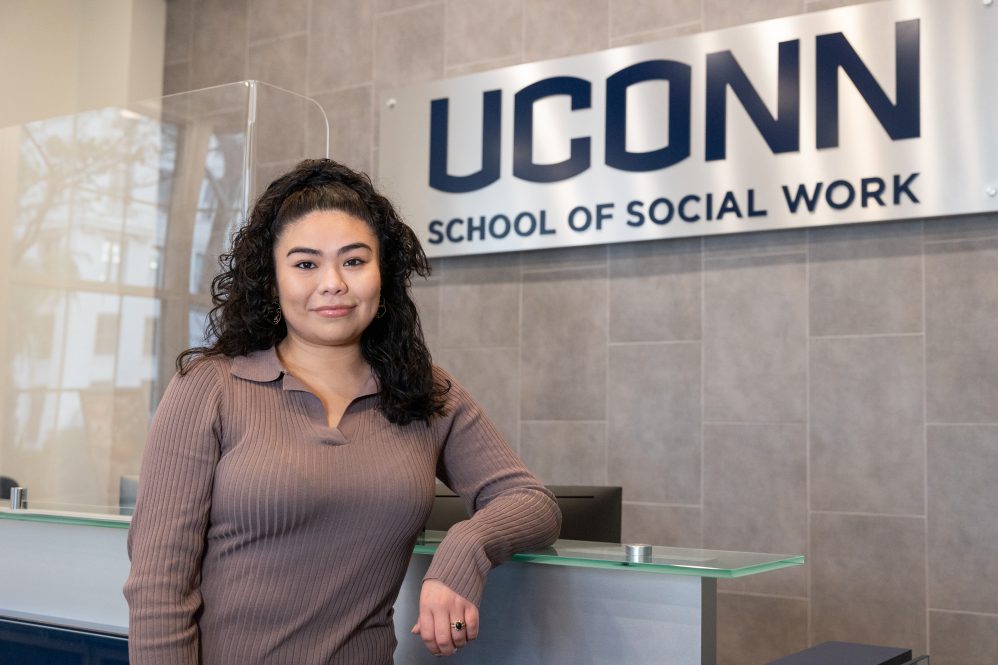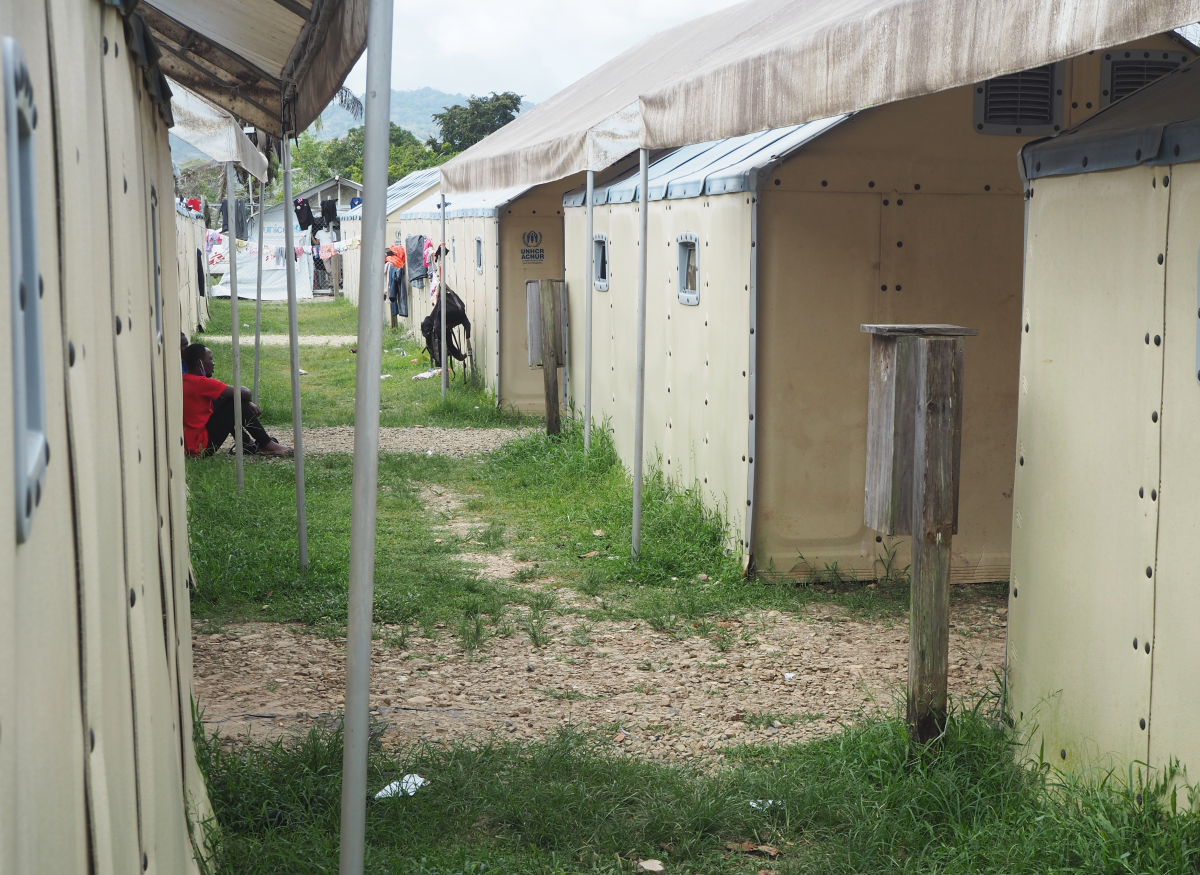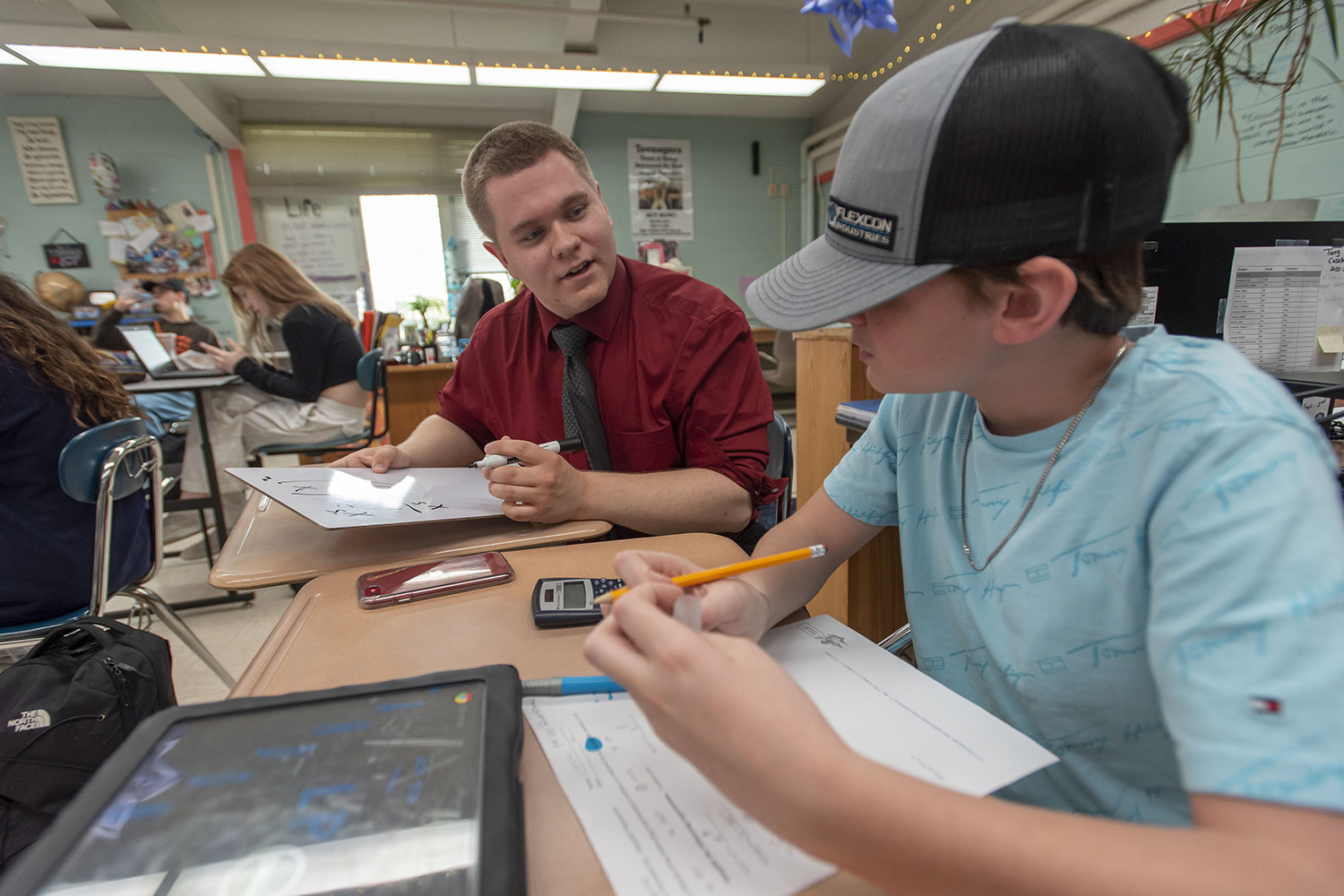A third-year master’s student at UConn School of Social Work, Kelly Sanchez ’15 (CLAS) recently received the prestigious Minority Fellowship from the Council on Social Work Education (CSWE), the national association representing social work education in the United States. Supported by grant funding from the Substance Abuse and Mental Health Services Administration, the fellowship award is for master’s social work students who demonstrate a strong commitment to addressing the mental health needs of BIPOC individuals, groups, and communities.
The CSWE Minority Fellowship Program support students committed to BIPOC mental health. What got you interested in that issue?
A: I’m a Husky through and through. I went to UConn for undergrad and did a double major in Psychology and Latin American Studies. While I was writing my senior thesis, I learned a lot about mental health and behavioral health and one of the things that really stood out to me is that research told us time and time again that Black and people of color do not utilize behavioral health services as much as our white counterparts. I started to look into the reasons why, and because of the nature of my double major, I was really looking at utilization in the Latino population. I learned there are several reasons: Culture is different, language is different. It’s because clinicians don’t look like you. There’s so much that goes into it that’s not always understood and that was important to me.
What are the key issues you’ve learned for the BIPOC community regarding mental health?
A: There are a few different issues. For one, I would say stigma is still huge in our communities. Even just a few years ago, if you said, ‘My therapist said this,’ people would look at you differently. They might ask, ‘Why are you going to a therapist? What problems do you have?’ It might be that you’re working through a problem, or it could just be that you’re going through changes in your life that you want to talk to someone about. I think that people are now understanding the benefits of seeing a therapist and it’s getting less stigmatized but there’s still a lot of work to do.
There are also structural and economic factors. Yesterday, I was talking to a client, and she said, ‘You know, I have gone to therapy, but I just can’t pay the copays anymore.’ What are we doing to help these individuals? Because at some point, she saw value in going to therapy, but she just doesn’t have the resources now.
What is your concentration in the master’s program?
A: I chose the Individuals, Groups and Families Practice concentration. I’m preparing to be a clinician. In my current field placement, I have individual patients for one-on-one therapy, and I also run a women’s group. My field placement was the perfect match for me. I am doing a placement at Optimus Healthcare in Bridgeport. It’s a federally qualified health center and they’re piloting a program for women and girls. It’s called the emme coalition and their goal is to empower, motivate, and give women and girls the tools to be more mindful. Because it’s only open to residents of Bridgeport, there are a lot of Black and women and girls of color. I work with the adult women ages 18 to 49.
It’s great to provide space for these women to come together. A lot of them are moms who have trouble retaining employment and are receiving social services. Sometimes they’re the sole providers and the women’s group that I started when I became an intern there was really special for them. They are learning skills that are going to help them become better versions of themselves, which is the mission of the pilot program.
Is it like a group therapy? How would you describe your role?
A: I am the main facilitator. As the team’s first Master of Social Work (MSW) intern, I came on to start group therapy and to do mental health check-ins with the women in the program. Many of the program participants have diagnoses of PTSD, generalized anxiety disorder, and major depressive disorder. Just about all of them have lived through traumatic events and we use a trauma-informed perspective to deliver services to them.
What do you plan or foresee yourself doing when you graduate?
A: That’s a great question. After undergraduate school, I earned a master’s in public health. I have been working in the public health field for a few years now. The only issue I had was that I was so taken away from the community. At that point, I was working with administrators, doctors, and clinicians. But I missed patients, I missed clients, I missed the community. As a bilingual and bicultural person, I knew that I was not using all my skills, including my ability to speak Spanish. There is not only a shortage of behavioral health clinicians nationwide but additionally there is a shortage of bilingual clinicians.
The whole reason I did psychology was to work with people, so I went back to my roots. I needed to take a step back to do what I had originally planned, which was to be a therapist. I got back into it and started the MSW program. My dream job would be to combine public health and social work. For me, it would be great if I could find a position that’s 50% administrative, working on projects like the emme coalition or a similar program for girls and women and at the same time provide behavioral health services as a clinician. That would be the best of both worlds for me.
Why did you choose UConn School of Social Work?
A: Connecticut is my home. I was born and raised in New Haven. I left and went to Maryland, Rhode Island, and then I came back. I found a position at UConn Health, and I had been there for a little over a year before I started the MSW program. UConn is the best ranked social work in the state of Connecticut. Many social workers that are in this area are UConn trained or UConn educated. It’s a strong network of individuals to be part of both at the micro and macro levels of social work.
What advice would you give to others interested in pursuing their masters at UConn?
A: If I could go back a few years, I would probably do the dual degree program. UConn offers a three-year, dual degree program for a Master’s in Public Health and MSW. It’s taken me five years to get both. Social work and public health complement each other in so many ways. You just can’t have one without the other. I encourage students interested in either field to look into the other, I don’t think you’ll regret it.
I would definitely say do your research. UConn has a lot to offer. You have your different tracks but don’t be afraid to think outside of the box. Ask questions. We’re all learning here and part of what I think has been a good experience in the School of Social Work is that I’ve been advocating for myself. If you need help, ask for it. I applied to this fellowship on a whim. I thought, well, if I get it, I get it and if I don’t, I don’t, but at least I tried. This fellowship will allow me to connect with a network of BIPOC clinicians, researchers and health care professionals around the country and for that I am extremely grateful.



